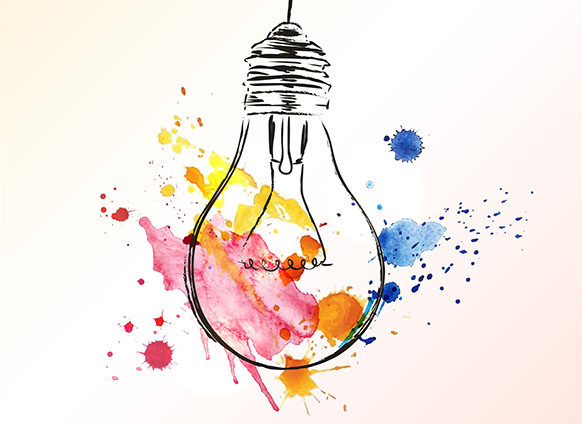Week 7: The Unconscious Creative Mind
Exploring the unconscious mind has been a subject of fascination and investigation for psychologists and scholars throughout history, with remarkable figures such as Sigmund Freud and Carl Jung making significant contributions to understanding this phenomenon. While Fued and Jung joined forces for a time, "...this relationship and collaboration began to deteriorate as the years went on" (Vesna). Furthermore, as an analytical and educated individual, Jung formulated his own ideas of the human psyche. He reached a divergent conclusion, contending that Freud's notion of the unconscious mind was "limited and overly negative." In contrast, Jung believed that the "unconscious could also be a source of creativity" (Vesna). Furthermore, in an essay about the creativity of the unconscious mind, Caragh Medlicott poses the idea that "our conscious mind can only hold a very small amount of information at a time" (Medlicott) proving that when we need to get creative or innovative our minds often trail off into our unconscious to find artistic knowledge.

This brings me to an exciting experiment conducted by Simon Ritter and others called "Creativity: The Role of Unconscious Processes in Idea Generation and Idea Selection," where they aim to understand the role of the unconscious mind in creativity. Throughout their study, participants were asked to come up with creative ways to make time pass while waiting in line at a store. The participants were split into three groups. One group had to come up with ideas immediately, another group had time to think carefully, and another had to do a quick task before coming up with their ideas. The researchers found that participants who were distracted by a task before coming up with ideas were better at choosing more creative ways to pass the time waiting in line (Ritter et al.). In other words, participants who were less focused on the study developed more creative ideas proving that the unconscious mind allows individuals to be more creative.
Furthermore, in an article titled "What Happens to Us When Art Connects to the Unconcious," Stevin Winn discusses how art forms like paintings, art, music, dance, books, and movies, impact our psyche deeper than what we perceive consciously. In other words, these art forms tap into a deeper part of our brains, stirring up emotions and associations that nourish and renew us (Winn).

Works Cited
Baker, Bob. “Power of Your Subconscious Mind for Artists & Creative People.” YouTube, YouTube, 4 Apr. 2017, www.youtube.com/watch?v=ulNP-NEQLCQ.
Hajiioannou, Christina. “Fun Science-Based Facts about the Creative Mind.” The NextGen Artists, The NextGen Artists, 23 Mar. 2021, www.thenextgenartists.com/post/fun-science-based-facts-about-the-creative-mind.
Imber, Amantha. “6 Scientifically Proven Creativity Boosters You’ve Probably Never Heard Of.” SUCCESS, 7 June 2023, www.success.com/6-scientifically-proven-creativity-boosters-youve-probably-never-heard-of/.
Medlicott, Caragh. “The Role of the Subconscious Mind in Creativity.” Ayoa, February 27, 2023.
https://www.ayoa.com/ourblog/the-role-of-the-subconscious-mind-in-creativity/.
Ritter, Simone M., et al. “Creativity: The Role of Unconscious Processes in ... - Scott Barry Kaufman.”
Science Direct , Radboud University Nijmegen, 17 Oct. 2011, scottbarrykaufman.com/wp-
content/uploads/2012/11/Ritter-et-al.-2012.pdf.
Vesna, Victoria. "Neuroscience and Art Part 2: Unconscious Mind/Dreams Lecture"
Winn, Steven. “What Happens to Us When Art Connects to the Unconscious.” SF Gate, 29 May 2007, www.sfgate.com/entertainment/article/What-happens-to-us-when-art-connects-to-the-2591269.php.

Hi Mallory, I really enjoyed reading about your post, especially about the creativity experiment! I didn’t know such an experiment existed, but I agree with the results from my personal experience too. When I’m stuck with homework, I often start doing another task to gain inspiration.
ReplyDeleteMallory, the experiment that you shared was interesting and I found myself asking questioning what do I do in some of these cases. It is one that I've found some inspiration from to check in at the end of the day and see which one of the groups I fell in that day and what I came up with. Treating myself as an experiment.
ReplyDelete